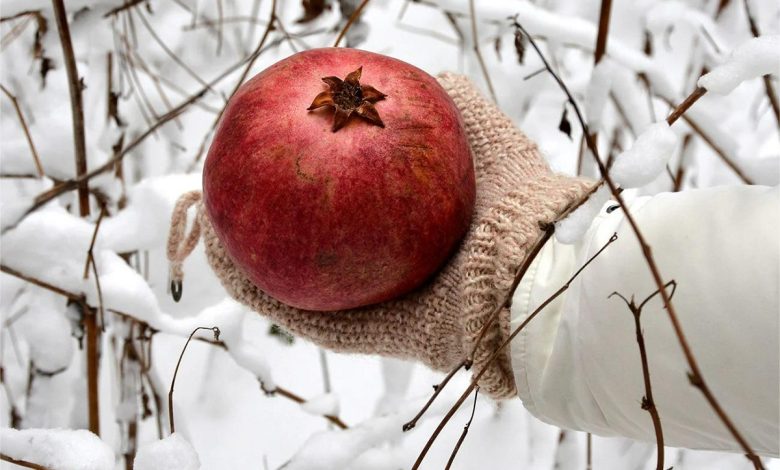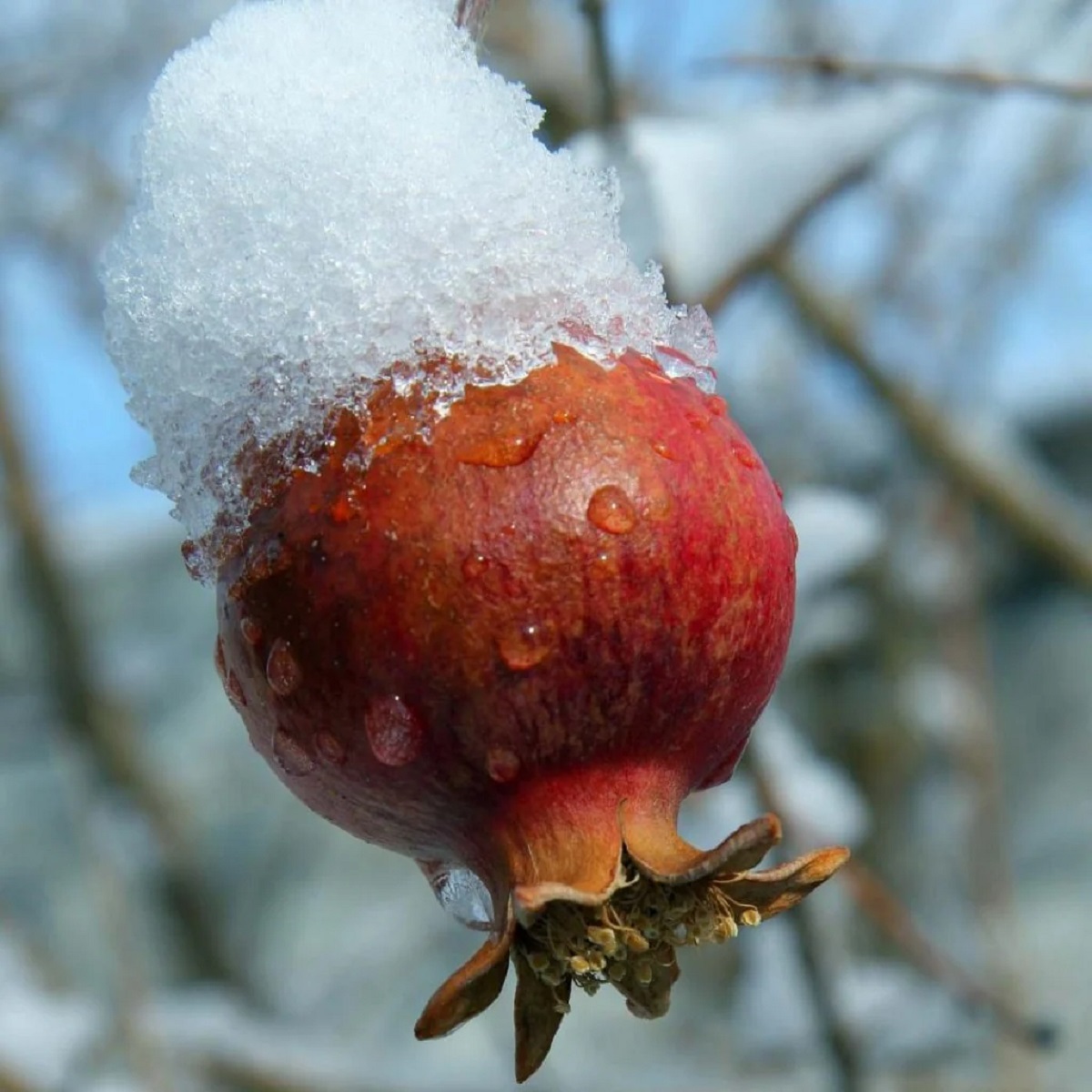The Best 7 Health Benefits Of Pomegranate In Cold Weather

Pomegranate In Cold Weather: Pomegranate, often referred to as the “fruit of paradise,” is a nutritional powerhouse packed with vitamins, minerals, and antioxidants.
Its unique combination of health-promoting compounds makes it especially beneficial during the colder months, when the body is more vulnerable to seasonal illnesses and environmental stressors. This essay explores the many ways pomegranate supports health and well-being in cold weather.
Health Benefits Of Pomegranate In Cold Weather
1. Boosts Immune System

Pomegranate In Cold Weather, Cold weather often brings an increased risk of colds, flu, and other infections. Pomegranate is rich in vitamin C, a vital nutrient for strengthening the immune system. Additionally, its high antioxidant content, including polyphenols and flavonoids, helps neutralize free radicals, reducing oxidative stress that can weaken immune defenses.
2. Protects The Skin Against Winter Dryness
Cold weather can dehydrate the skin, leading to dryness, irritation, and cracking. Pomegranate contains ellagic acid, a natural antioxidant that helps retain skin moisture and improve skin elasticity. Its hydrating properties and ability to promote collagen production make it a natural ally for maintaining healthy, glowing skin in winter.
3.Promotes Heart Health
Pomegranate In Cold Weather, Cold weather can constrict blood vessels, increasing the risk of cardiovascular problems, especially in individuals with existing heart conditions. Pomegranate helps counteract these risks by improving blood circulation and reducing inflammation in the blood vessels. The fruit’s natural nitrates and polyphenols support healthy blood pressure levels and prevent arterial plaque buildup.
4. Enhances Digestive Health

Rich in dietary fiber, pomegranate aids digestion and prevents constipation, a common issue during the winter when people tend to consume fewer fresh fruits and vegetables. Additionally, its antimicrobial properties can help balance gut bacteria, promoting overall digestive health.
5. Fights Seasonal Depression And Fatigue
Pomegranate In Cold Weather, Shorter daylight hours and colder temperatures can lead to feelings of fatigue and seasonal depression. Pomegranate is a natural source of energy, thanks to its high levels of natural sugars and essential vitamins. Moreover, its ability to improve blood flow ensures better oxygen delivery to the brain, enhancing mood and mental clarity.
6. Supports Joint Health
The cold can exacerbate joint pain and stiffness, particularly in individuals with arthritis. Pomegranate’s anti-inflammatory properties help reduce joint inflammation and alleviate pain. Its antioxidants also protect cartilage from damage, promoting long-term joint health.
7. Helps Prevent Winter Illnesses

Pomegranate In Cold Weather, Pomegranate’s antibacterial and antiviral properties provide an added layer of protection against seasonal illnesses. Studies have shown that pomegranate extract can inhibit the growth of harmful bacteria and viruses, reducing the severity and duration of common colds and respiratory infections.
Conclusion
Pomegranate In Cold Weather, Pomegranate is much more than a delicious fruit; it is a powerful tool for maintaining health during the cold months. From boosting immunity and improving skin health to enhancing heart function and mental clarity, its diverse benefits make it a valuable addition to any winter diet. Incorporating pomegranate into daily meals—whether as fresh seeds, juice, or in recipes—can help ward off seasonal challenges and keep the body strong and vibrant.
Also Read:
The Health Benefits Of Eating Pomegranates In Autumn
The 6 Best Benefits Of Pomegranate For Health
8 Essential Fall Fruits For Women’s Health: Seasonal Superfoods To Boost Wellness
6 Top Autumn Fruits: A Seasonal Delight Packed With Health Benefits




